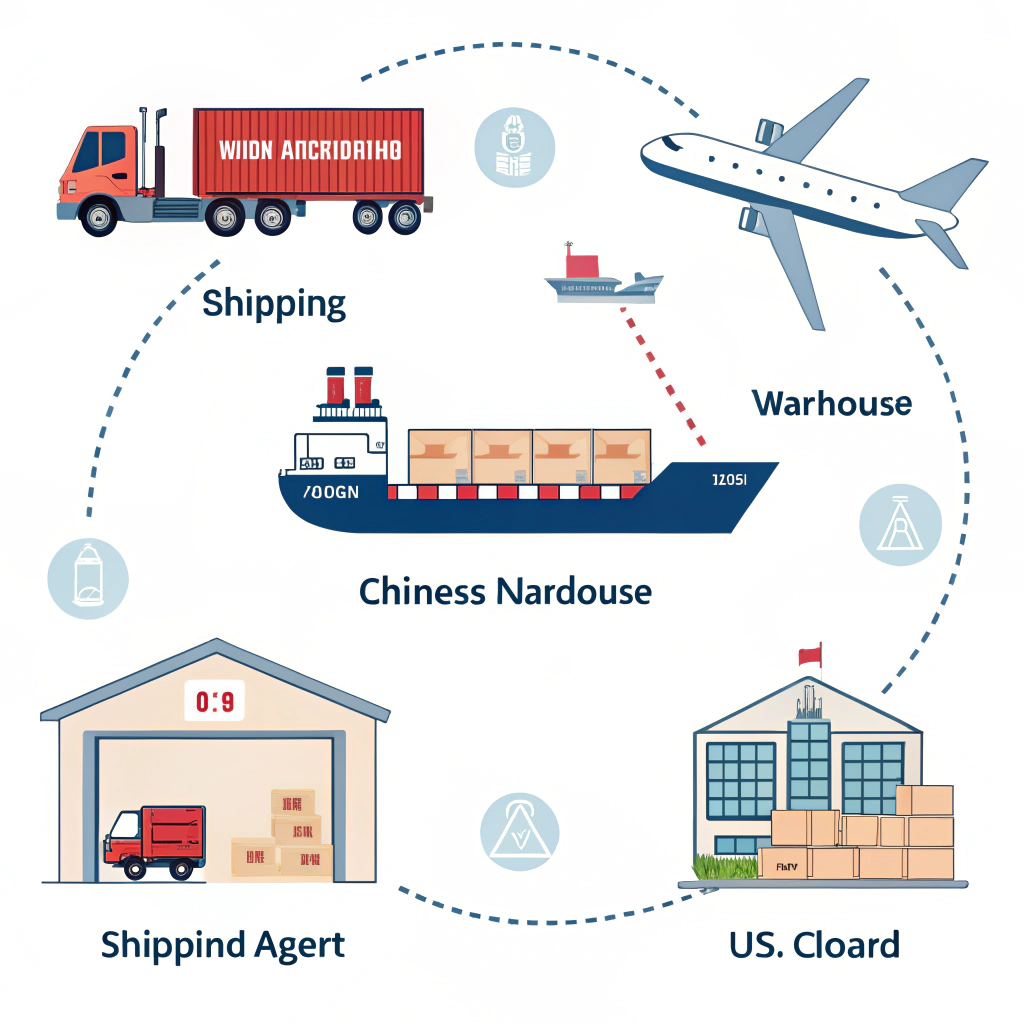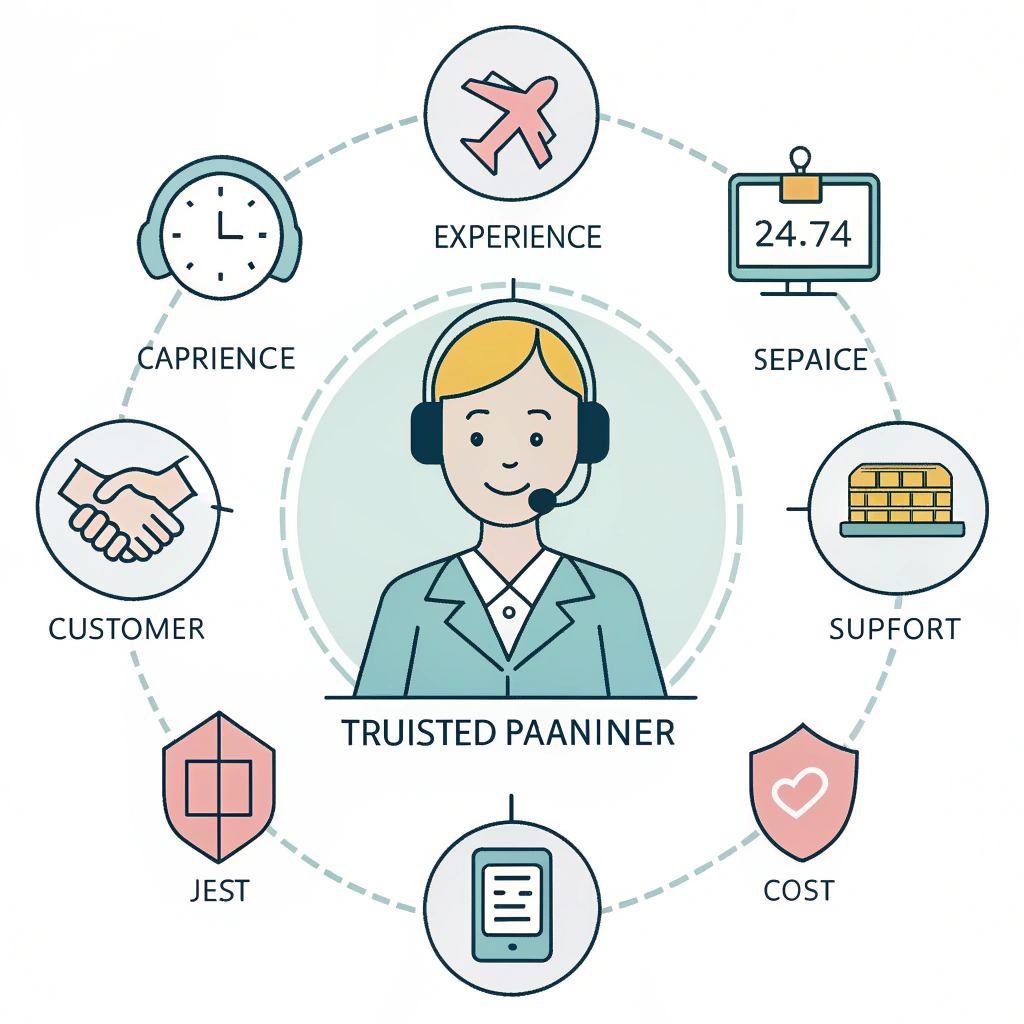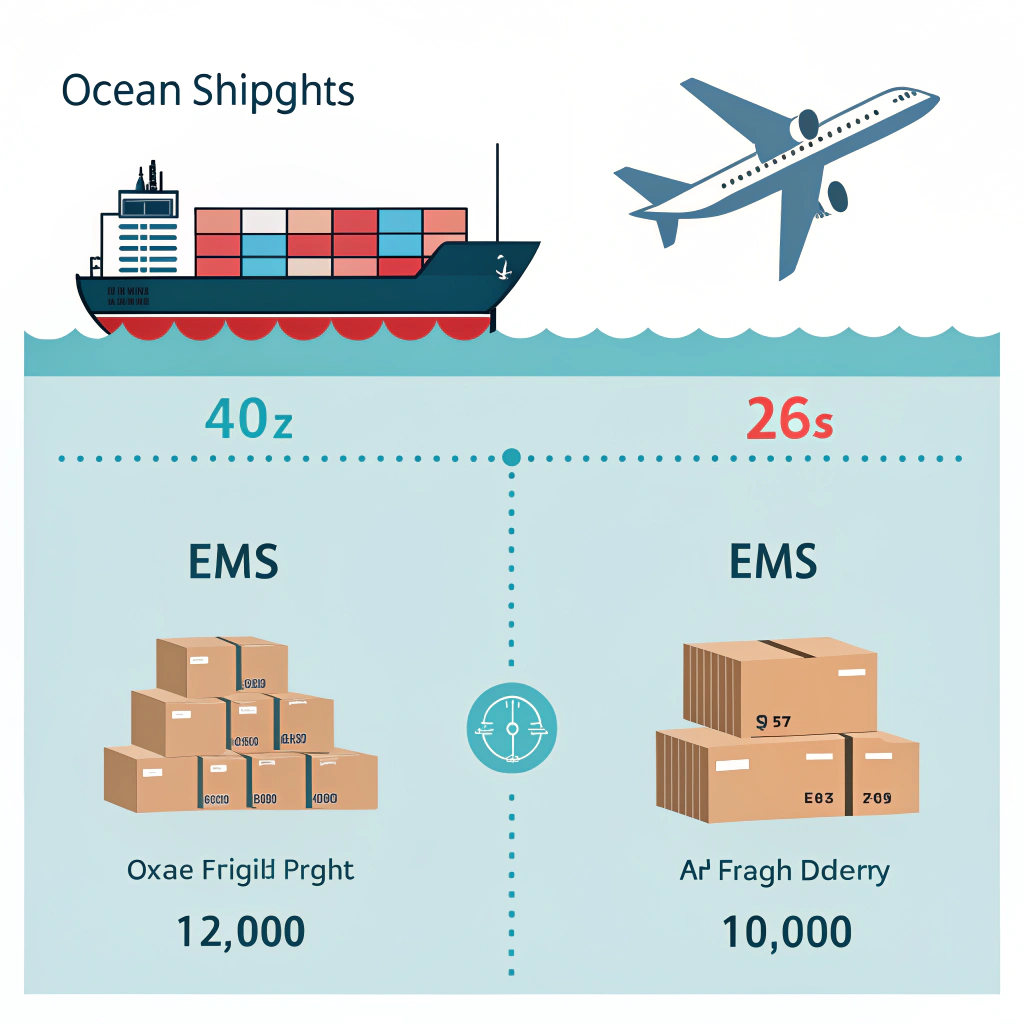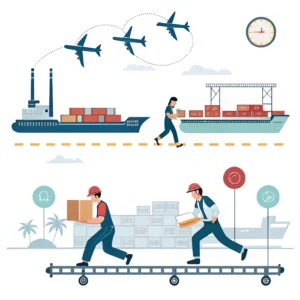Shipping goods from China to the USA smoothly and cost-effectively requires expert coordination across multiple steps—from booking space on vessels or planes, handling customs clearance, to last-mile delivery. A shipping agent1 plays a critical role in orchestrating these processes efficiently while optimizing your freight spend. This article explains how leveraging a shipping agent’s expertise can help you reduce costs, avoid delays, and improve supply chain reliability.
A shipping agent1 acts as your representative in China and the destination country, managing the complexities of international freight transport on your behalf. Their services cover several key areas:
- Freight Booking and Consolidation2: Booking space for your cargo on ocean or air transport and consolidating smaller shipments (LCL) into full containers (FCL) to cut costs.
- Documentation Preparation: Handling all export/import documentation including bills of lading, commercial invoices, packing lists, and certificates required by customs.
- Customs Brokerage3: Navigating import regulations and tariffs in the USA to ensure goods clear customs without unnecessary delays or fines.
- Cargo Tracking and Updates: Providing real-time updates about your shipment status to help you plan warehouse and distribution activities accurately.
- Problem Resolution: Quickly addressing issues like delayed shipments, cargo damage, or customs holds through their network and experience.
- Warehousing & Last-Mile Coordination: Offering storage solutions and arranging trucking or delivery from ports/airports to your warehouse or customers.
By coordinating these services professionally, a shipping agent helps make your supply chain from China to the USA seamless and predictable.
Managing international shipments independently is possible but riddled with risks and hidden costs. Here are the main ways a shipping agent adds value:
| Benefit | Explanation |
|---|---|
| Cost Savings | Agents negotiate better freight rates with carriers due to volume and relationships. |
| Consolidation Expertise | Combining multiple small shipments into one container reduces your per-unit shipping costs. |
| Customs Compliance | Avoid fines and delays by leveraging an agent’s knowledge of complex US import regulations. |
| Time Efficiency | Agents handle booking and documentation fast, cutting transit and clearance times. |
| Risk Mitigation | Agents proactively manage shipping disruptions, rerouting or expediting as needed. |
| Supply Chain Visibility | Real-time tracking and updates allow you better inventory and demand management. |
These advantages translate to lower landed costs, fewer headaches, and improved customer satisfaction.
Cost control is paramount for importers, and a shipping agent employs several tactics to achieve this:
Because agents book large volumes, they secure discounts unavailable to individual importers. Whether by ocean freight4 or air freight5, they pass on savings to you.
Many agents offer less than container load (LCL) consolidation where they combine your cargo with other clients’ shipments. This avoids paying for unused container space, especially for smaller weekly shipments.
An experienced agent will advise you on the best mix of ocean vs. air freight based on cost, speed requirements, and cargo nature. For example, offers like EMS small package delivery offer cheap solutions for urgent small items.
Proper packing to maximize container or pallet space reduces the number of shipments required and protects cargo integrity, saving both money and time.
Here is a typical workflow showing how a shipping agent simplifies the process:
| Shipping Step | Role of Shipping Agent |
|---|---|
| Cargo Pick-Up in China | Arrange trucking from supplier to port/warehouse |
| Book Freight Space | Reserve slots on ships/planes to assure timely shipment |
| Export Documentation | Prepare and verify legal documents for Chinese export clearance |
| Consolidation & Loading | Combine shipments and ensure cargo is safely loaded in containers or pallets |
| Ocean/Air Transit | Monitor cargo in transit, update ETA |
| US Customs Clearance | Submit import documentation and coordinate duty/tax payments |
| Inland Transportation | Arrange last-mile trucking to your warehouse or customers |
| Delivery Confirmation | Confirm receipt and handle any claims or communication |
This end-to-end management drastically reduces the workload on your team and minimizes errors or delays.
To maximize benefits, consider these factors when selecting your partner:
| Factor | Why It Matters |
|---|---|
| Experience & Network | Agents familiar with China-USA routes and regulations perform better |
| Service Range | Full-service agents handling freight, customs, warehousing add value |
| Technology | Real-time tracking and digital document management improve transparency |
| Customer Support | Accessible, proactive communication is essential for issue resolution |
| Cost Transparency | Clarify all fees upfront to avoid surprises |
A reliable shipping agent becomes a strategic ally in your supply chain rather than just a service provider.
A mid-size importer of electronics partnered with our shipping agent team to manage weekly shipments from Shenzhen to Los Angeles. By consolidating LCL shipments into full containers and optimizing air/sea balance, they reduced their average freight cost per unit by 20%. Our proactive customs brokerage prevented clearance delays during peak seasons, enabling consistent delivery schedules critical for their retail release dates.
Partnering with a specialized shipping agent1 for shipments from China to the USA offers clear advantages in cost savings, operational efficiency, and risk management. Key takeaways:
- Agents leverage industry connections to secure discounted rates on ocean and air freight.
- Consolidation options and mode selection optimize your freight spend.
- Expert customs handling prevents costly clearance issues.
- End-to-end shipment management saves internal resources and improves reliability.
If your business is looking to improve supply chain predictability and reduce shipping expenses, engage a professional shipping agent early in the sourcing process. Assess their experience, service breadth, technology use, and cost structure to find a partner aligned with your logistics goals.
Q1: How to get cheaper shipping from China to the USA?
The most economical option depends on your cargo size and urgency. For small packages needing fast delivery, EMS, an international postal Express Mail Service, offers cost-effective air shipping. For larger shipments, consolidating cargo into full containers and selecting ocean freight over air freight typically reduces costs significantly.
Q2: Should I always use an agent when shipping goods from China?
Using a shipping agent improves convenience and speed by managing bookings, customs, and transport logistics. However, if you prioritize direct control over supplier relationships and pricing, or work with suppliers offering complete logistics solutions, you may opt to handle shipping independently or partner with sourcing experts.
Q3: What is the average shipping cost from China to the US?
Shipping costs vary widely by mode: ocean freight for a full container (FCL) typically ranges from $3,500 to $6,000 and takes 15–35 days; less than container load (LCL) costs about $50–$80 per cubic meter with transit of 20–40 days. Air freight is faster (5–10 days) but more expensive at $5–$8 per kg, while express courier services cost $8–$12 per kg with delivery in 3–5 days.
-
Shipping agent: Reading this will clarify the vital role and responsibilities of shipping agents in international logistics, helping you understand their impact on cost, timing, and compliance. ↩ ↩ ↩2 ↩3
-
Freight Booking and Consolidation: Learn how booking cargo space and consolidating shipments optimize load utilization and reduce per-shipment costs. ↩ ↩
-
Customs Brokerage: Gain insights into how customs brokers facilitate compliance with import regulations, avoiding fines and delays. ↩ ↩
-
Ocean freight: Discover the advantages, cost structure, and typical transit times of ocean freight — essential for shipping large volumes internationally. ↩ ↩
-
Air freight: Understand the benefits, pricing, and speed considerations of air freight for urgent or smaller cargo shipments. ↩ ↩












